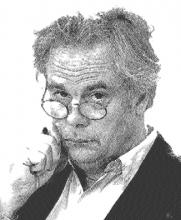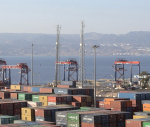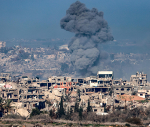You are here
Who was Ariel Sharon?
Jan 17,2014 - Last updated at Jan 17,2014
The Middle East has been living a nightmare, partly because of a man of Russian origin who became Israel’s greatest general and, later, prime minister: Ariel Sharon.
What were the inner thoughts of this man?
This is what Amos Oz, an acclaimed Israeli journalist, writer and novelist with a worldwide reputation helped one discover in an interview published by the Israeli daily Davar on December 17, 1982.
“Call Israel by any name you like, call it a Judeo-Nazi state. Better a live Judeo-Nazi than a dead saint. I don’t care whether I am like Qadhafi. I am not after the admiration of the gentiles. …. I will destroy anyone who will raise a hand against my children, I will destroy him and his children, with or without our famous purity of arms.
“We’ll hear no more of that nonsense about the unique Jewish morality, the moral lessons of the Holocaust or about the Jews who were supposed to have emerged from the gas chambers pure. As for Eyn Hilwe [Lebanon’s largest refugee camp] it’s a pity we did not wipe out that hornet’s nest completely.”
Sharon first stirred up controversy with the massacre at Qibya, a Palestinian village. Troops under his command attacked the village in October 1953 as a reprisal for the murder of a woman and two children in the Israeli town of Yehud two days before.
About 45 houses in Qibya were blown up with their inhabitants inside; 67 men, women and children died.
The Sabra and Shatilla massacre (Sharon used that word) in Lebanon, to which Sharon referred in the Amos Oz interview, occurred between September 16 and 18, 1982. Between 800 and 3,500 Palestinian civilians in the Sabra and Shatilla refugee camps were killed by the Lebanese Phalangists.
The Israeli forces, given the order by Sharon, then minister of defence, surrounded the camps, blocked camp exits and provided logistical support.
Later that year, a commission established by the Israeli government, led by the head of the supreme court, Yitzhak Kahan, found that as minister of defence bore “personal responsibility” for the massacre.
On September 28, 2000, Sharon, escorted by over 1,000 Israeli police officers, visited Al Haram Al Sharif complex, site of the Dome of the Rock and Al Aqsa Mosque, the third holiest site in Islam.
He publicly claimed this as Jewish territory — despite 1,300 years of continuous Muslim presence — because down below are the remains of the temple that the Romans destroyed.
Sharon declared that the complex would remain under perpetual Israeli control.
How would Christians have felt if Sharon had strutted across the piazza in front of St. Peter’s and made a speech that slighted Christian claims to that piece of earth?
How would the Jews have felt if the Palestinians had suspended political banners from the Dome at the top of the hill down over the sacred Wailing Wall below?
Sharon was elected prime minister in February 2001. Certainly his walk about near Al Aqsa Mosque worked in his favour when Israelis went to the polls.
During the latter part of his career, Sharon was investigated for alleged involvement in a number of financial scandals, in particular the “Greek island affair” and fund-raising irregularities during the 1999 election campaign.
In the “Greek affair”, Sharon was accused of promising, during his term as foreign minister, to help an Israeli businessman, David Appel, in his development project on a Greek island in exchange for large consultancy payments to Sharon’s son, Gilad.
Sharon was not charged with any wrongdoing, but the police announced that they had found evidence of a $3 million bribe paid to Sharon’s sons.
Just 24 hours after the announcement, Sharon suffered a stroke, in January 2006, went into a coma and never recovered.
His son Omri, a Knesset member at the time, who was Sharon’s closest adviser, was charged with corruption and sentenced later that year to nine months in prison.
The Sabra and Shatilla massacre was the reason for many to call for a war crimes trial. As Oz revealed in his interview, Sharon was a man of very extreme views, even if they became diluted under the responsibilities of government office.













